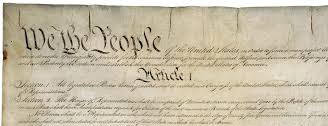The jury in Trump’s so-called hush money case took just two days deliberating, and unanimously found him guilty of falsifying business records to cover up a crime. Trump is claiming the trial was rigged (much as the 2020 election was, according to him). More to the point, Republicans in Congress are rallying around him, even as Democrats are celebrating the verdict. Speaker of the House Mike Johnson has called the trial “a purely political exercise, not a legal one” and called the verdict “a shameful day in American history.” Republican Representative Jim Jordan, chairman of the House Judiciary Committee and a pro-Trump attack dog, has announced that he wants Manhattan DA Alvin Bragg to appear before his committee for questions. (Last year, Jordan brought his committee to New York to hold hearings about violent crime, to make the point that Bragg was concentrating his attention on the wrong things.)
The verdict may or may not have any impact on the election. Most Democrats will vote for Biden and most Republicans will vote for Trump, and in those camps there are two different narratives about what’s going on, with Republicans viewing all of the criminal cases against Trump as nothing but a politically motivated “witch hunt.” Between those camps are the swing voters, many of whom base their votes simply on how they feel about the direction the country is going in with the current president. Biden’s approval rating has been stuck in the low 40s since the end of summer of his first year, and his response to the Mideast war seems to be losing him votes in swing states where the results are guaranteed to be very close and could go either way.
I’ve been saying right along that I consider the New York case to be the weakest case against Trump, and now that he’s been convicted, I would say that it’s the easiest conviction for Trump to claim was politically motivated and unfair. I regard the strongest case as being the one involving his keeping of government documents, including classified documents, at his resort/home in Mar-a-lago, Florida, followed closely by the two election interference cases, one federal and one in Georgia. None of those cases are likely to proceed this year, and the scheduling of the New York trial may have played some part in their delay, especially where the Mar-a-lago case is concerned. Of all the cases against Trump, I consider the New York case to be the one least likely to change anybody’s mind about Trump in this election. Again, it needs to be remembered that his actual base will stay loyal to him no matter what he’s convicted of. He was absolutely right when he boasted that he could shoot somebody in broad daylight on Fifth Avenue and they would still love him.
Trump will, of course, appeal this ruling. One significant point that they will undoubtedly use is in Judge Merchan’s instructions to the jury. The case pivoted on the charge that he falsified business records to conceal a crime, and jurors were given three possible crimes to consider that he might have been trying to conceal:
–violation of federal election campaign finance law, with Michael Cohen’s fronting of the hush money being an illegal campaign contribution;
–falsification of other business records to defraud, in violation of a New York State law against using fraud to interfere with the results of an election; and/or
–violation of New York State and City tax law, which prohibits giving false information on a tax return.
Moreover, the judge told the jury that they didn’t have to specify, or agree on, which of those three possible crimes he was concealing. Trump will undoubtedly claim, in his appeal, that this violates his right to know exactly what it is that he’s being punished for.
Because it’s a state-level conviction, the appeal will be in a state-level court. So far, I haven’t heard talk of grounds for any kind of federal appeal.
Although this conviction can’t stop Trump from being the Republican candidate for president, it may prevent him from voting for himself in Florida. After all, he’s going to get at least probation in the July 11 sentencing. Florida law prohibits a person on probation from casting a ballot. Of course, the sentence may be deferred pending the appeal.
Between now and the sentencing, he has to submit to a pre-sentencing interview with a city probation officer. One can certainly wonder how that’s going to go.
Article in Politico, May 30, 2024



